How to Manage Your Period During an Emergency
Periods are a natural part of life for many women, but they can be challenging to manage during emergencies. Whether you’re dealing with a natural disaster, a power outage, or simply don’t have access to your usual supplies, it’s important to know how to manage your period so that you can stay comfortable and healthy.
In this post, we’ll cover some tips and tricks for managing your period during an emergency situation. How To Make Reusable Menstrual Pads
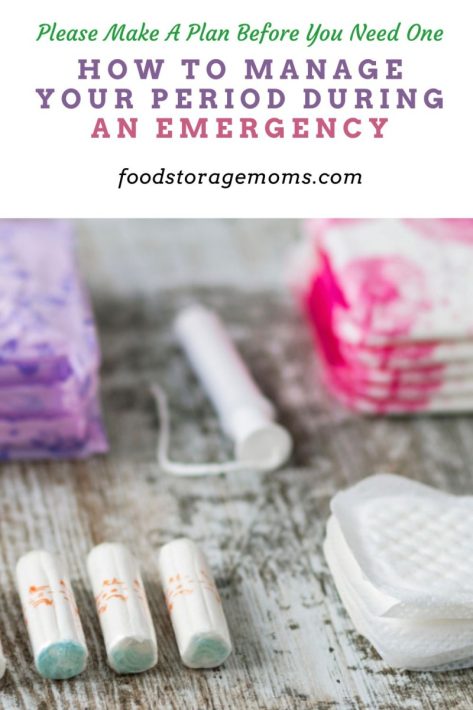
1. Stock Up on Supplies
The first step in managing your period during an emergency is to make sure you have the necessary supplies on hand. This includes pads or tampons, pain relief medication, and any other products you typically use during your period.
If you know that an emergency is coming (such as a hurricane or severe storm), make sure to stock up on these supplies ahead of time. If you’re caught off guard by an unexpected emergency, try to get to a store as soon as possible to purchase what you need.
2. Use Reusable Products
During an emergency situation, disposable products like pads and tampons may not be readily available. That’s why it’s a good idea to invest in reusable menstrual products like menstrual cups or cloth pads.
Menstrual cups are made from medical-grade silicone and can be reused for up to 10 years with proper care. They’re also eco-friendly and cost-effective in the long run.
Cloth pads are another reusable option that can be washed and reused many times over. They come in various sizes and absorbencies just like disposable pads.
Steff reminded me about these: Washable Period Panties
3. Stay Hydrated
Drinking plenty of water is essential for overall health during emergencies, but it’s especially important when you’re on your period. Staying hydrated can help reduce cramps and bloating associated with menstruation.
Make sure to drink plenty of water throughout the day, even if it means rationing your supply if necessary.
4. Keep Clean
During an emergency situation where water may be scarce or unavailable, keeping clean can become a challenge. However, it’s important to maintain good hygiene during your period to prevent infections or other complications.
If possible, take showers regularly using warm water (if available) or use baby wipes or other gentle cleansing products if showers aren’t possible.
5. Prioritize Self-Care
Managing your period during an emergency can be stressful and overwhelming at times. That’s why it’s essential to prioritize self-care whenever possible.
Take breaks when needed, practice deep breathing exercises or meditation if possible (even just for a few minutes), and listen to calming music or podcasts if available, whatever helps you relax and stay calm amidst the chaos.
Managing your period during an emergency isn’t always easy but being prepared ahead of time and having these tips in mind will help make the process smoother.
Remember to stock up on supplies beforehand; consider using reusable products; stay hydrated; keep clean; prioritize self-care.
By following these simple steps, you’ll be better equipped to handle whatever challenges come your way during this time while still taking care of yourself!
What if you can’t get your hands on a pad?
If you can’t get your hands on a pad, there are other options you can try. One option is to use toilet paper or tissue as a makeshift pad. Fold several layers of toilet paper into a rectangle and place it in your underwear to absorb menstrual blood. Keep in mind that this may not be as effective as a regular pad, so you’ll need to change it more frequently.
Another option is to use cloth materials such as towels or rags as a temporary solution until you can get access to proper menstrual products. Make sure the material is clean and preferably made from natural fibers like cotton. Fold the cloth into a rectangle and place it in your underwear just like you would with a pad.
It’s important to note that while these alternatives may work in an emergency situation, they shouldn’t be used for extended periods of time as they may increase the risk of infection or irritation. It’s best to switch to proper menstrual products as soon as possible once they become available again, particularly if you experience any challenges when using the substitutes.
Pros and Cons of Using Tampons in an Emergency
Here are some pros and cons of using tampons in an emergency! Make sure you add some to your Everyday Carry Bag-What You Need.
Pros:
- Tampons are small and easy to carry with you, making them a convenient option in case of an emergency.
- They are designed to absorb menstrual blood, which can also make them useful for other types of bleeding emergencies.
- Tampons can be inserted directly into a wound to help stop the bleeding until medical help arrives.
Cons:
- Tampons may not be sterile, which could increase the risk of infection if used in a wound.
- They may not be able to absorb as much blood as other types of wound dressings, which could require more frequent changes.
- If not inserted properly, tampons could cause further damage or discomfort.
- It’s important to note that while tampons can be helpful in certain emergency situations, they should never replace proper medical attention. If you or someone else is experiencing a serious injury or medical emergency, always seek professional medical help immediately.
Pros and Cons of Using Pads in an Emergency
Sure, here are some pros and cons of using pads in an emergency:
Pros
- Pads are easily accessible and can be found in most stores and pharmacies.
- They are affordable and cost-effective compared to other menstrual products.
- Pads don’t require any special insertion techniques, making them easy to use for beginners.
- They provide a barrier between the body and clothing, preventing leaks and stains.
Cons
- Pads can feel bulky and uncomfortable, especially when they become saturated with blood.
- They may not be as discreet as other menstrual products like tampons or menstrual cups.
- Some people may experience skin irritation or allergic reactions from the materials used in pads.
- Pads contribute to environmental waste since they are disposable.
Using pads in an emergency can be a convenient solution, but it’s important to consider the potential drawbacks as well. It’s also worth noting that everyone’s experience with menstrual products is different, so what works for one person may not work for another.
Pros and Cons of Using a Reusable Pad
Here are some pros and cons of using a reusable pad in an emergency:
Pros
- Environmentally friendly: Reusable pads are washable and can be used multiple times, which reduces waste compared to disposable pads.
- Cost-effective: While the initial investment may be more than disposable pads, reusable pads can save money in the long run since they don’t need to be constantly repurchased.
- Comfortable: Many people find that reusable pads are more comfortable and breathable than disposable ones.
Cons
- Limited absorbency: Some reusable pads may not have the same level of absorbency as disposable ones, which could lead to leaks or discomfort during heavy periods.
- Cleaning required: Since reusable pads need to be washed after each use, they require more maintenance than disposable ones.
- Initial cost: The upfront cost of purchasing reusable pads may be higher than buying a pack of disposable ones.
Using a reusable pad in an emergency has its benefits and drawbacks. It’s important to weigh these factors and consider personal preferences before making a decision. If you have painful periods, then reusable pads may be a good answer for you!
How do you deal with periods in an apocalypse?
It’s important to be prepared for all situations, including during an apocalypse. One way to deal with periods is to stock up on menstrual products and hygiene supplies ahead of time. Consider using reusable options such as menstrual cups or cloth pads if possible, as they can last longer and are more sustainable in a post-apocalyptic world. It’s also important to maintain good hygiene practices to prevent infection.
What else can I use to help with my period in an emergency?
Menstrual cup and period underwear. Keep in mind that what you use will depend on your menstrual cycle and your blood flow. This is something you have to prepare for in advance, so if you don’t have anything put aside yet, this is your chance!
How do I manage period pain in an emergency?
Sometimes period pain is worse than the actual period. Whether you have irregular periods or regular periods, it’s important to know how to manage pain. If you have a medical condition that brings you a lot of pain with your period, then consider putting a grab bag together with emergency pain medicine to go with your period grab bag. If an emergency strikes, you will have a lack of access to menstrual hygiene management. Make sure you pack different sizes of period supplies!
More Emergency Supplies Tips:
- Are You Prepared for a Medical Emergency?
- 10 Quick Tips For Emergency Supplies
- 7 Tips on How to Refresh Prepping Disaster Supplies Easily
Final Word
If you are someone who has heavy menstrual bleeding or you are curious about menstrual health in an emergency, these tips should help you a lot. Just because an emergency strikes, it doesn’t mean there will be fewer periods. The best way to manage your period during an emergency is to start now. Grab extra supplies and don’t rely on emergency shelters to have what you need. If there’s something we’ve learned over the years, it’s that disaster preparedness starts with you and this goes for putting together an emergency period kit. May God Bless this World, Linda
Copyright Images: Intimate Feminine Hygiene Supplies AdobeStock_406965955 By Imagenatural

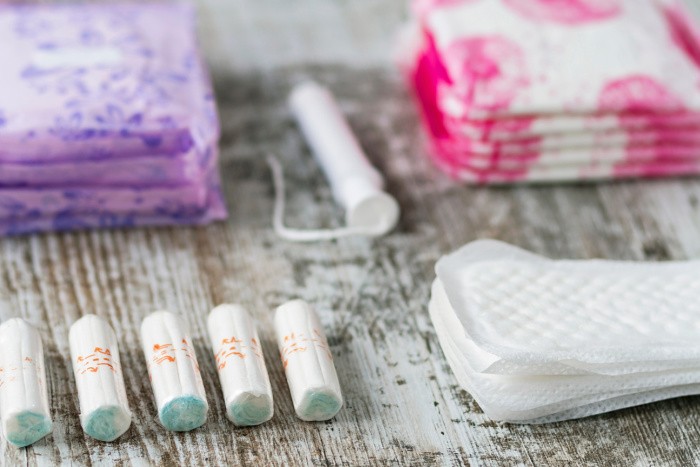


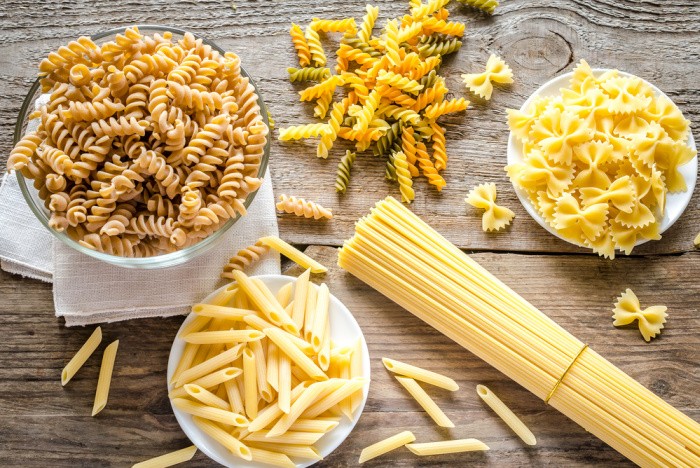
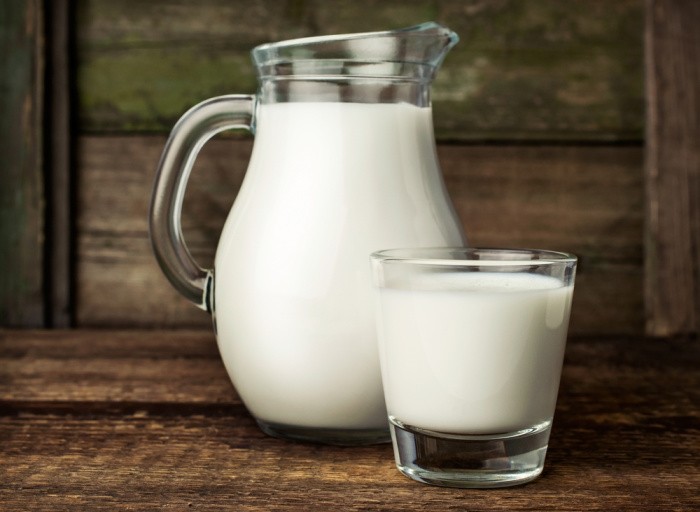
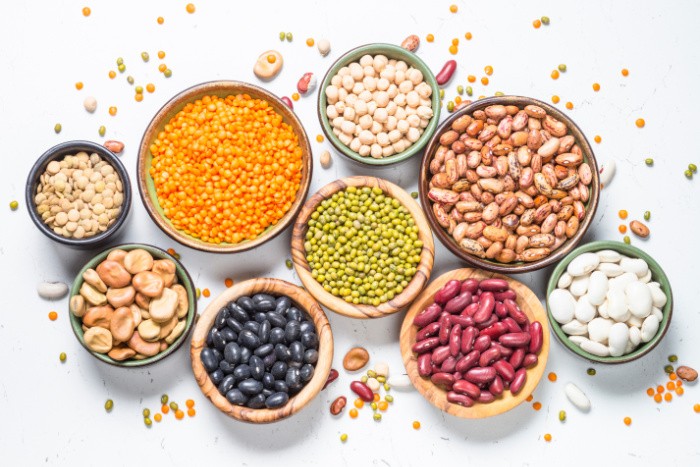
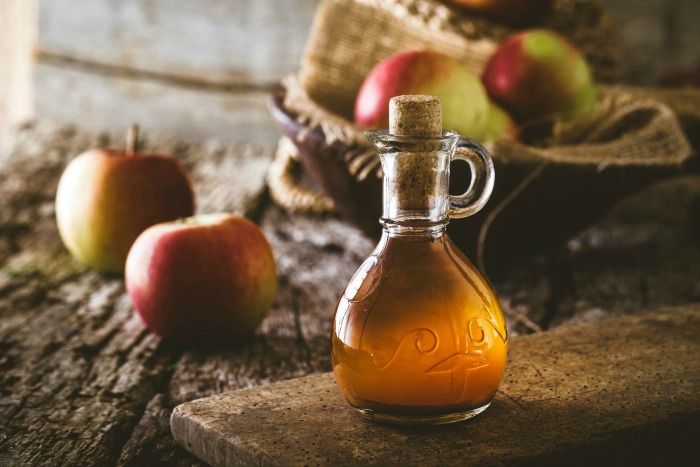
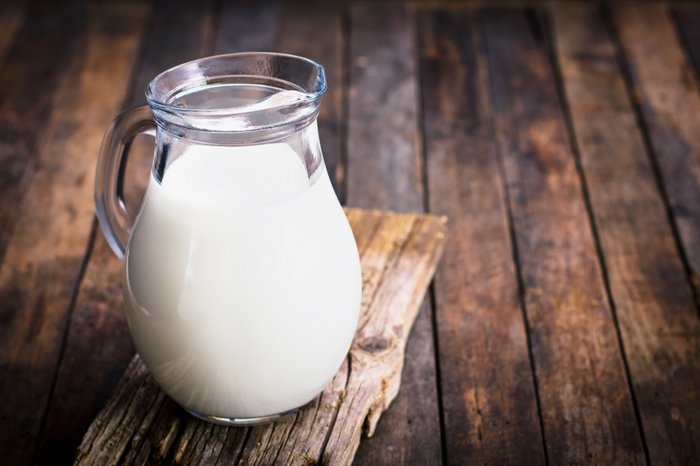
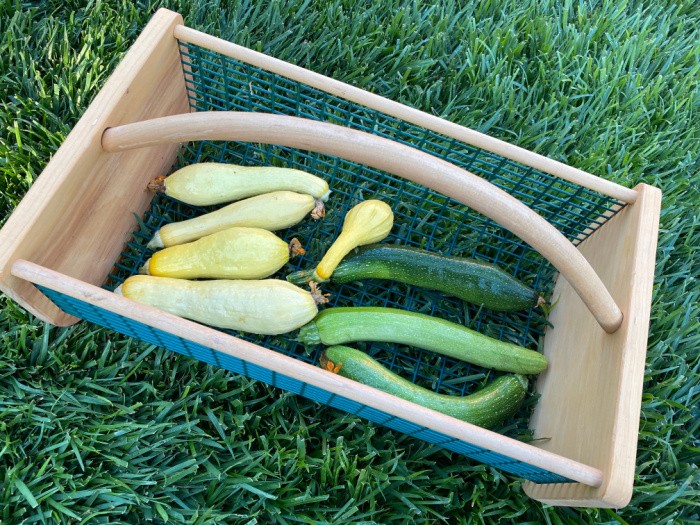


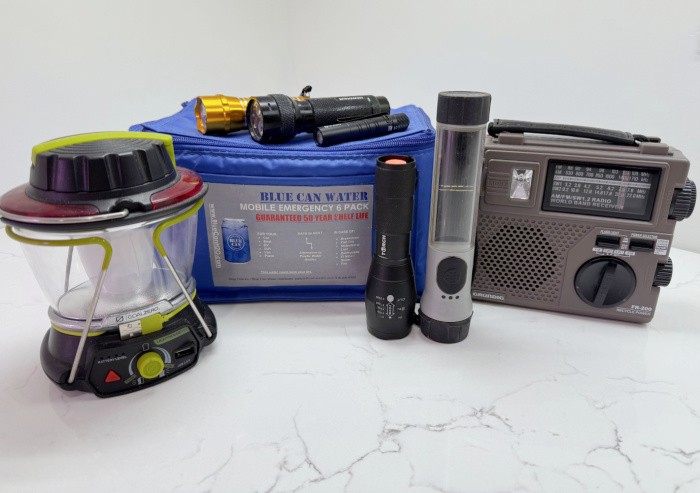
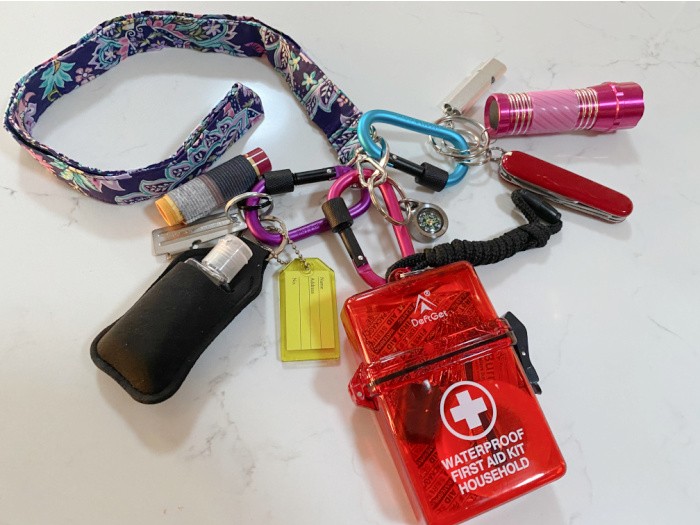








Also want to mention washable period panties. They are super helpful as everyday back ups for young ladies just beginning their cycle and irregularity. Wish they had those when we were young.
Hi Steff, oh thank you for that reminder, yeah those would have been awesome when we were young. I will add those right now. Linda
Like periods, incontinence requires necessary supplies. Often male and female supplies can be adapted for either.
Hi Chris, I totally agree with you. We must stock items for incontinence as well. Linda
Hi Linda! What a great article on an often often overlooked subject!
Vitamin E 1200 iu a day for 3 days just before my period was an effective pain & cramp relief. I had cramps & other related issues so bad that I sometimes passed out. Nothing over the counter helped until I started hunting for alternatives & met 2 very helpful ladies who ran a very good herb & alternative medicine shop. The Vitamin E greatly lessened the cramping & pain. It also mitigated some of the discomfort if taken the first three days of my period when I forgot that was The Week!
Now that I’m weĺl over 60, I’ve joined the Laugh, Cough, Sneeze, OH My group. During the height of the TP shortages, incontinence pads were also hard to find. I saved my money, did my research & ended up purchasing washable incontinence pads from Linda with Drytopia on Etsy. Her double layer pads can even handle the problems from my 20 lb Toby cat launching himself from the top of the dresser & landing directly on my bladder!
Needless to say, I have put away a replacement set of the washable pads, as the ones I got were good for about 300 washes or about 3-4 years use.
I do have a small supply of the disposable pads. We recently used some as a covering on my husband’s surgery site when he had ligaments reattached in his hip. Worked great & gave that area a little padding so the seam of his pants didn’t irritate the incision.
BDN, I do so love your sense of humor. I hate the whole don’t sneeze or cough, or go too far from the nearest bathroom. My doctor predicted this when he delivered my second 9 pound baby boy. All those exercises were a waste of time.
Hi Chris, those exercises, I never did them, good to know they were a waste of time! LOL! Love this, Linda
I use tampons but I’m not going to lie, I’m not where near prepared if there is an emergency. I have a heavy flow so this would this be tough.
Hi Jess, great comment, people need to stock up on these items or at least have the materials to make reusable ones. Linda
Perineum squeeze bottles (commonly used after childbirth) work very well for cleaning.
Hi Lucy, oh great reminder, thank you!! Linda